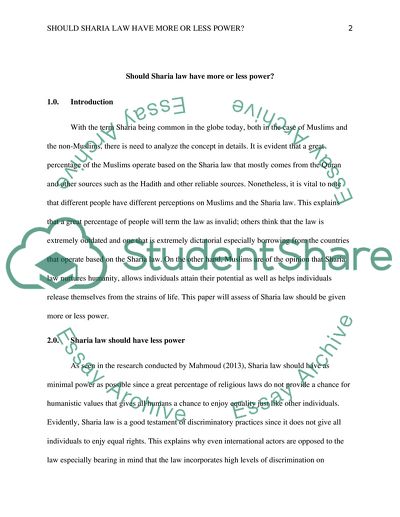Cite this document
(“Should Sharia law have more or less power Research Paper”, n.d.)
Should Sharia law have more or less power Research Paper. Retrieved from https://studentshare.org/english/1691827-should-sharia-law-have-more-or-less-power
Should Sharia law have more or less power Research Paper. Retrieved from https://studentshare.org/english/1691827-should-sharia-law-have-more-or-less-power
(Should Sharia Law Have More or Less Power Research Paper)
Should Sharia Law Have More or Less Power Research Paper. https://studentshare.org/english/1691827-should-sharia-law-have-more-or-less-power.
Should Sharia Law Have More or Less Power Research Paper. https://studentshare.org/english/1691827-should-sharia-law-have-more-or-less-power.
“Should Sharia Law Have More or Less Power Research Paper”, n.d. https://studentshare.org/english/1691827-should-sharia-law-have-more-or-less-power.


